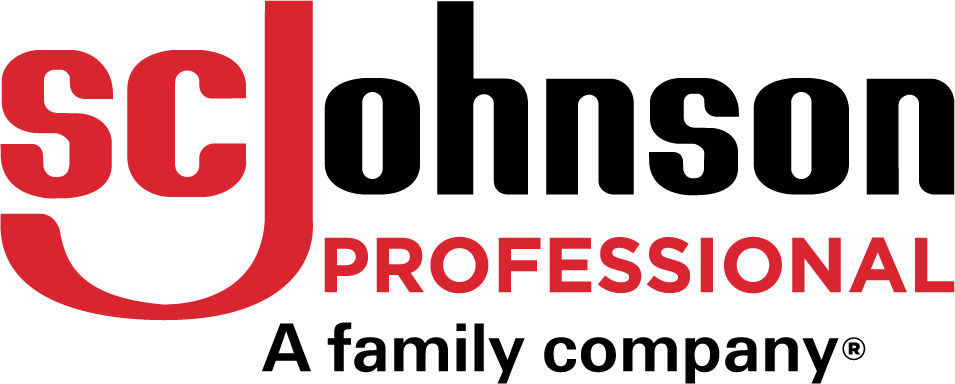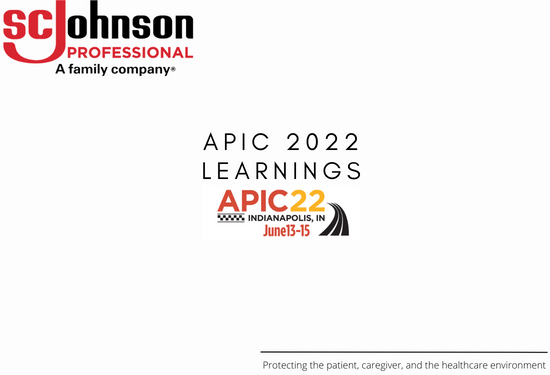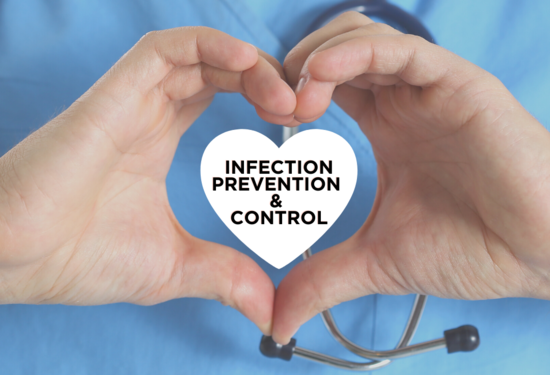3 Insights from APIC 2021 to Help Guide Healthcare Leaders Moving Forward
By SC Johnson Professional Healthcare
This year’s virtual APIC 2021 discussion placed a well-deserved spotlight on the infection prevention and control (IPC) professionals on the front lines of the pandemic. However, the work completed by infection preventionists has been critical to promoting a culture of safety in healthcare long before COVID-19.
Moving forward, IPs will remain in focus and they must receive the support and resources to continue safeguarding healthcare.
Here are three beneficial insights from APIC to help hospital leaders support the future of infection prevention:
1. Infection preventionists always played a crucial role in infection prevention:
Infection preventionists play a critical role in monitoring and help reduce the spread of illnesses to patients and staff. Their work is primarily conducted behind the scenes within healthcare settings. They help contribute to patient and employee safety while assisting hospitals with avoiding costly penalties from hospital-acquired infections (HAIs) through their infection prevention strategies.
IPs are experts in transmission, prevention and training. Their role is continuously evolving to meet the ever-changing guidance for current and novel infectious risks. IPs are responsible for tracking, reporting, and reducing hospital-acquired infection (HAI) rates and developing the programs to drive culture change across an organization. Over the past decade, an increased need for better transparency around patient safety, coupled with progressive, mandatory reporting requirements and an increased demand to meet the evolving expectations of healthcare consumers - have long required that IPs wear several hats.
2. Infection preventionists need support:
Several vital discussions during APIC 2021 emphasized the immediate need to support the well-being of IPs who have worked day and night as the pandemic overwhelmed infection control programs. Hospital leaders and healthcare workers quickly turned to IPs for their expertise in basic infection prevention practices. As hospital systems attempt to recover, IPs are expected to return to their everyday responsibilities, ensuring readiness to respond to the threat of outbreaks both past, present and future.
3. Investments toward safety technology are essential to support the future of infection prevention and control:
Within the last year, many hospitals and healthcare facilities evaluated their preparedness levels, which confirmed that many needed to make essential changes to their infection prevention strategies. This realization has emphasized the need to standardize infection prevention protocols. Many hospitals are turning to safety technology solutions, such as electronic hand hygiene monitoring and automated contact tracing, in addition to their current strategies to help improve infection prevention protocols.
The pandemic changed healthcare systems for the foreseeable future. A continued emphasis will be placed on the importance of IPs and their expertise to develop infection prevention strategies. Coupled with promoting a positive culture of patient and employee safety, IPs can develop strategies, policies, and procedures that prevent widespread infections with infection data gathered from patient safety technologies.
Return To News



